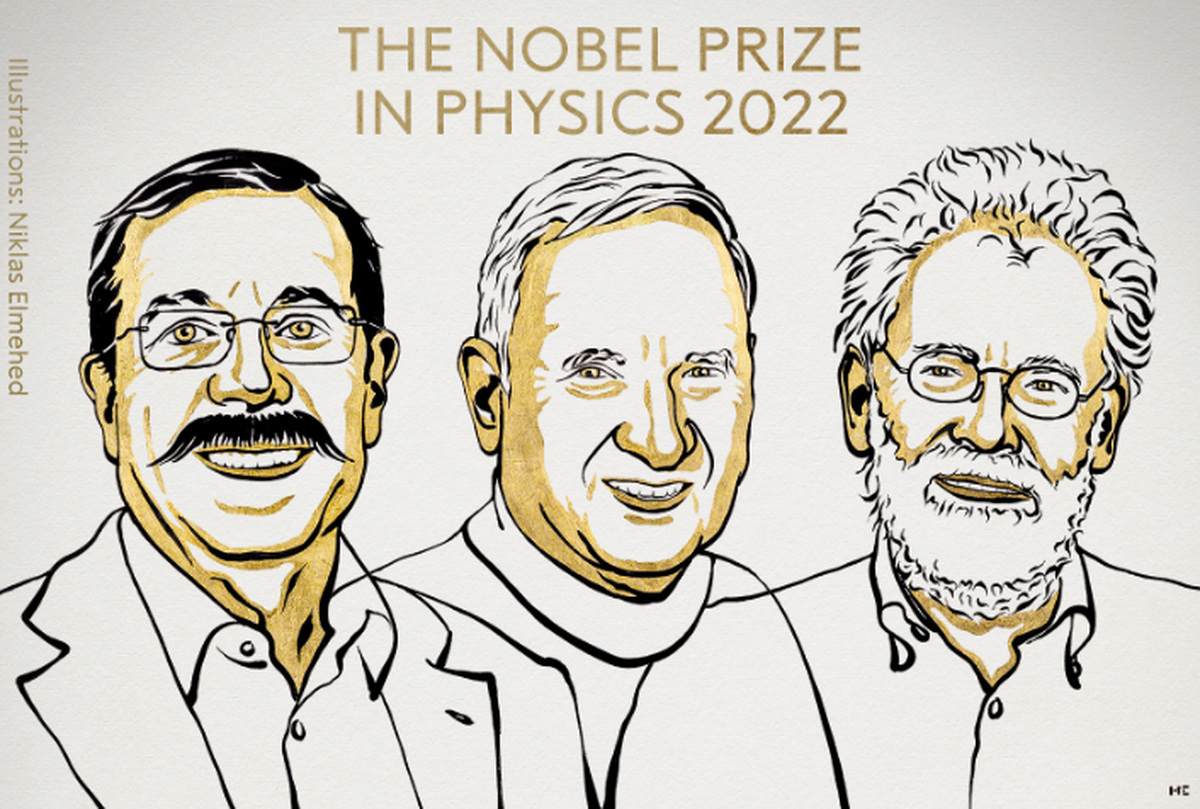OCTOBER 4: The Nobel Prize in hysics for 2022 is being awarded to Alain Aspect, John F. Clauser and Anton Zeilinger for their work on quantum mechanics, the Royal Swedish Academy of Sciences announced on October 4, 2022.
The 2022 NobelPrize in Physics has been awarded “for experiments with entangled photons, establishing the violation of Bell inequalities, and pioneering quantum information science,” the academy said.
The 2022 physics laureates’ development of experimental tools has laid the foundation for a new era of quantum technology. Being able to manipulate and manage quantum states and all their layers of properties gives us access to tools with unexpected potential.
Intense research and development are underway to utilise the special properties of individual particle systems to construct quantum computers, improve measurements, build quantum networks and establish secure quantum encrypted communication.
This year’s Nobel Prize laureate John Clauser built an apparatus that emitted two entangled photons at a time, each towards a filter that tested their polarisation. The result was a clear violation of a Bell inequality and agreed with the predictions of quantum mechanics.
Alain Aspect – awarded the 2022 Nobel Prize in Physics – developed a setup to close an important loophole. He was able to switch the measurement settings after an entangled pair had left its source, so the setting that existed when they were emitted could not affect the result.
Anton Zeilinger, 2022 Nobel Prize laureate in physics, researched entangled quantum states. His research group has demonstrated a phenomenon called quantum teleportation, which makes it possible to move a quantum state from one particle to one at a distance.
The 2022 Nobel Prize laureates in physics have conducted groundbreaking experiments using entangled quantum states, where two particles behave like a single unit even when they are separated. The results have cleared the way for new technology based upon quantum information.
The 2022 physics laureates’ development of experimental tools has laid the foundation for a new era of quantum technology. Being able to manipulate and manage quantum states and all their layers of properties gives us access to tools with unexpected potential, the accademy said.
Intense research and development are underway to utilise the special properties of individual particle systems to construct quantum computers, improve measurements, build quantum networks and establish secure quantum encrypted communication, it added.
Last year, the academy honoured Syukuro Manabe, of Japan and the United States, and German Klaus Hasselmann for their research on climate models, while Italian Giorgio Parisi also won for his work on the interplay of disorder and fluctuations in physical systems.
The physics prize is followed by chemistry on Wednesday, with the literature and peace prizes announced on Thursday and Friday respectively.
Swedish paleogeneticist Svante Paabo, who sequenced the genome of the Neanderthal and discovered the previously unknown hominin Denisova, on Monday won the Nobel Medicine Prize. (AGENCIES)


